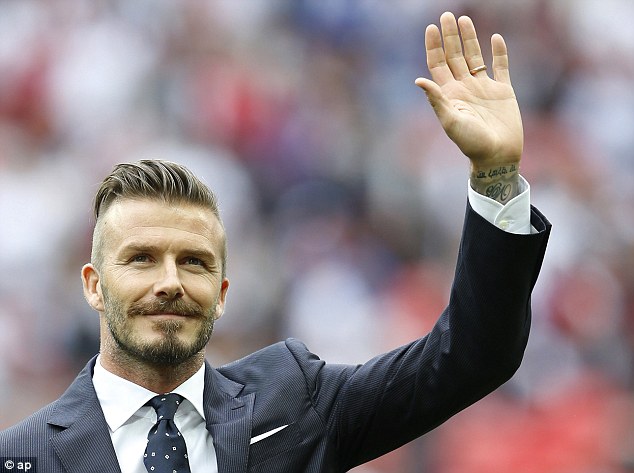Ask any football fan to imagine how a Premier League footballer spends his days after retiring and the perception will be something like this: 8am: Wakes up in a revolving four-poster bed in the east wing of his nine-bedroom mansion, strolls down the spiral staircase to feed the rare tropical fish in his 10ft aquarium, then tucks into a decadent breakfast freshly prepared for him and his model wife by their resident chef, Carlo. 8.30am: After an admiring nod to the life-size classical bronze statue of himself standing in the hallway, drives the kids to school in his £132,000 Bentley Continental GT. 9.30am: Work done for the day, returns home to wallow in his Olympic-sized heated swimming pool, thrash balls around his bespoke snooker table which has his old shirt number elegantly woven into the baize, and work through his favourite box set on the 98-inch 4K TV in his soundproofed cinema room. 2pm: Goes shopping in his £150,000 Lamborghini Gallardo, nonchalantly blows £5,000 on designer clothes, watches and shoes, before enjoying a relaxing 18 holes on his luxurious local golf course. Related Articles Laura Trott’s 10 pro tips for surviving a 100-mile bike ride 07 Aug 2014 Greg Rutherford: how to perform under pressure 30 Jul 2014 How to get legs like track cyclist Jason Kenny 25 Jul 2014 The truth about cycling domestiques 18 Jul 2014 What do Tour cyclists eat for breakfast? 09 Jul 2014 7pm: Drives his £90,000 Porsche Cayenne to a music gig of his choice, where he sips Cristal and hangs out behind the scenes with assorted global superstars, all the while ignoring a flurry of increasingly clingy text messages from Piers Morgan. 12pm: Returns to his mansion and slides under his silk bed sheets, ecstatic to be alive. The staggering, cash-soaked opulence of the Premier League has helped to create such ridiculously gaudy myths and fallacious fantasies about the private lives of professional footballers. And perhaps for some stellar names the illusion may not be too far from the reality. But for most players the experience of retiring from the beautiful game is wildly different to what the public might perceive. Many former players seek new employment in the media, move into coaching or management, invest in business projects and property portfolios, or discover entirely new careers, from running hotels to working in financial services. For a lucky few, any work just helps to top up the glamorous lifestyle to which they have become accustomed. But for the overwhelming majority, it is simply a way to pay the bills, mortgage and school fees when the monthly pay packet ceases to arrive. “A football career doesn’t last forever and players need to be financially stable for their entire lives – not just for their playing career,” says Pete Smith, a former professional footballer for Brighton who now works as a director and player agent at New Era Global Sports Management. The London-based company looks after stars such as Rio Ferdinand and Ashley Williams as well as players in the Championship, League One, League Two and the Conference. “Only the top Premier League players can really say they are secure for life. There are around 4,000 professional players (in the UK) but only a small percentage of those are millionaires. And remember those players are all in the high tax bracket so they are paying 45pc on their income. People of all walks of life live to their means – whether you are a footballer, a brick layer or a mechanic – so many players will have large outgoings.” According to the Professional Football Association (PFA), Premier League footballers typically earn £25,000-£35,000 per week, Championship players can expect £4,000-£5,000, League One players £1,700-£2,500, and League Two players £1,300 to £1,500. Clearly football at all levels remains extremely lucrative, but when you consider that an average football career lasts just eight years and the standard retirement age of a player is just 35, even extravagant levels of wealth are likely to dissolve during the many remaining decades of a retired footballer’s lifetime. “As a footballer in the 1990s I used to say that I was like a well-paid builder because I knew some builders who had an equivalent income,” explains Smith. “Even today young players aged 17 or 19 will be on £150 a week while they are trying to make it. Players in League One might be earning £2,500 a week but what career outside of football can they go into when they retire at 35 and continue to get a wage like that? They would have to be a manager or in big business. Even the Prime Minister (£142,000) doesn’t earn much more. You have been living the life of someone earning that kind of wage, but when that wage stops your outgoings might still be £4,000 – or £40,000 – a month. Many of them have to really change their lifestyle.” For some players the financial pressure can be too much. According to XPro, a charity for ex-professional footballers, two out of every five players are made bankrupt within five years of retiring from professional football. Fortunes can vary wildly even for those who plan for the future. Ex-Liverpool striker Robbie Fowler amassed a rental property empire of over 80 houses and is believed to be worth £28 million. In contrast, former Aston Villa midfielder Lee Hendrie, who used to earn £30,000 a week during the peak of his career, was declared bankrupt in 2012 after his £10 million property portfolio collapsed. Other top players who have gone bankrupt include former England goalkeeper David James, who earned an estimated £20 million during his career, and Newcastle winger Keith Gillespie, who lost over £7 million. “We tell our players that it is crucial to have financial planning and to value money,” explains Smith. “You will certainly value it more when you’ve finished because you don’t have it. There are a few horror stories with high-profile players going bankrupt and, of course, they have no chance of recouping that money again. It’s gone. It’s done.” A player who waits until he retires before planning his future is likely to face problems. “It is the mindset we have got to change,” says Smith. “All players believe they are Peter Pan and think they will play forever. When their career suddenly stops, it can be a shock. If you play until you are 35 – which would be lucky – you are still a very young, healthy individual with another 35-40 years in which to work, live, bring up your family and put your kids through education and university. The penny normally drops around the age of 25-26 when they get married and have children. I often remind players who are playing in League One that they could find themselves in the Conference within 12 months and in the Conference South within another year. You have to plan for life after football in case things change.” Many players take the natural step into management or coaching in order to extend their paid involvement in football and harness the skills and experience they have acquired during their career. It is now common for players to study for their coaching badges during their playing career to prepare themselves in advance for future work in football. But some players end up venturing into entirely new careers – either to pursue personal interests or out of financial necessity. Former Newcastle player Philippe Albert runs a small fruit and vegetable business in Belgium. David May, who won the Champions League with Manchester United in 1999, founded a partnership to import South African wine. Sheffield Wednesday midfielder Carlton Palmer is now Director of Sport at Wellington College in Shanghai. Former Sunderland and Derby County striker Marco Gabbiadini runs the award-winning Bishops guest house in York. Ex-Tottenham goalkeeper Espen Baardsen is a fund manager and macro analyst at Eclectica Asset Management. And a recent newspaper report revealed that ex-Sunderland forward Kevin Kyle has been earning £800 a fortnight by working as a storeman on a ship in the Shetland Islands in order to provide for his family. To help players make the daunting transition into new work, the PFA run a series of education and qualification courses. In a message on the PFA website, Pat Lally, PFA Director of Education, explains: “We have former players who are now qualified surgeons, forensic scientists, teachers, lawyers, accountants, dog groomers, wine tasters, plumbers and electricians. Remember: football is a short career and you will probably have to earn your living in another industry, so it makes sense to prepare now.” Smith says he has arranged for his own stable of players to take courses and do work experience placements. Many footballers progress from school to the professional football industry as teenagers and lack the life skills and educational qualifications required to step straight into new careers. “We like our lads to get some early preparation for life after football,” he says. “Once you stop playing football, all of a sudden you become normal. You’re on Civvy Street. A lot of players think they can prepare when they finish and that is an error in their judgement.” The media has proven to be a fertile environment for footballers who wish to earn a living and stay involved in the game. Pundits such as Gary Neville and Gary Lineker are high-profile examples, but even less lucrative media jobs can be important bridges for players wishing to find new careers. “I like to see players working in the media and doing match reports on a Saturday,” explains Smith. “Guys like John Salako have great knowledge about the game and it’s very good for them. When I worked at the PFA we had former players going to every game in the country to rate players and feed information to the Press Association. They didn’t get massive money but it got them out on a Saturday to work with their local clubs and gain great experience by working alongside the press. Before then their CVs just said: ‘football, football, football.’” It is not just lower-league players who have to plan for the future. Even wealthy Premier League superstars need something to occupy their minds and inject purpose into the second halves of their lives. “You have to consider how players mentally cope with life after football,” says Smith. “They spend years following the same routine: up at 9am, breakfast with their teammates, training, having fun, feeling fit and healthy, playing matches, having a purpose. Then that routine breaks and you find yourself sitting in your house thinking: what do I do now?” It’s one of the reasons Rio Ferdinand has invested so much of his time and money into personal business projects, including an online sport and lifestyle magazine, a clothing range and an Italian restaurant in Manchester called Rosso. “Rio is a great example because he has already got involved in things that he is interested in,” explains Smith. “Sometimes players do something because they think it’s the best way forward. Rio got involved in what he likes and that means he will have an active passion in them going forwards. Although he is still playing he has prepared himself really well for life after football.” Smith believes that the famously reticent Paul Scholes’s decision to join BT Sport as a pundit is a prime example of how a footballer ultimately has to consider mental nourishment, as well as financial security, during retirement. “Working in the media keeps players in the loop and keeps them active,” he suggests. “Everybody knows Paul Scholes is a man of few words so it will be nice to see him on TV giving his opinions on football. Is Paul Scholes doing it for financial reasons? Probably not. I would imagine he has got enough money to live a very good life. But he is 39 years old, he loves football and he can’t sit indoors all day. What else is he going to do?”



